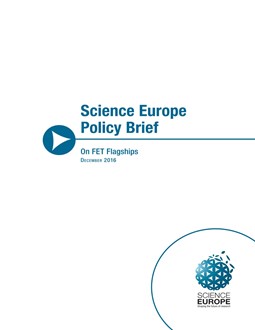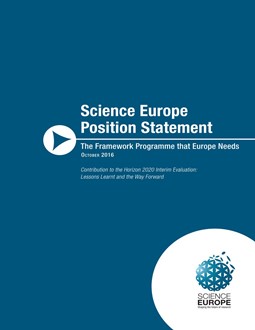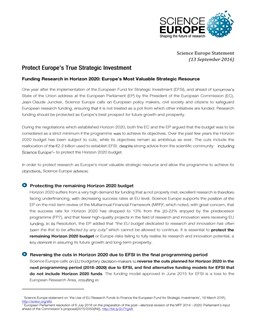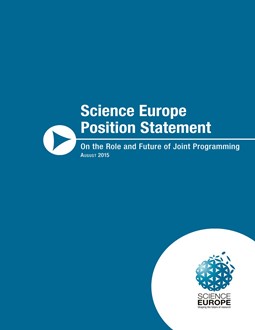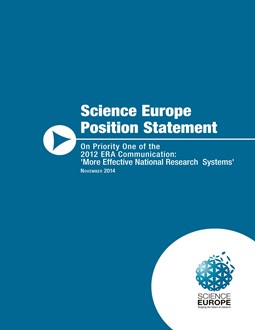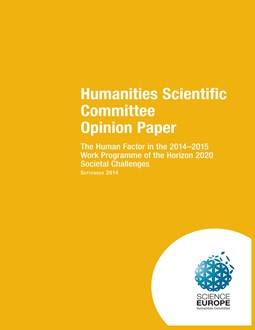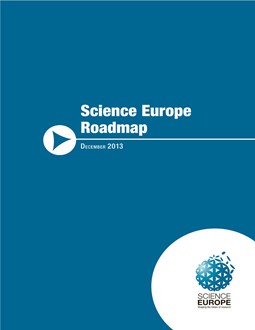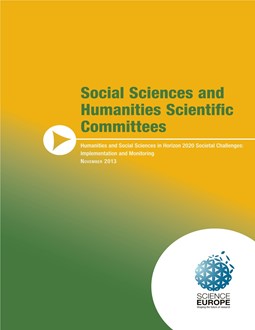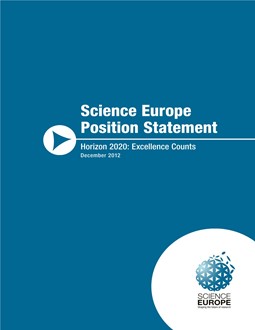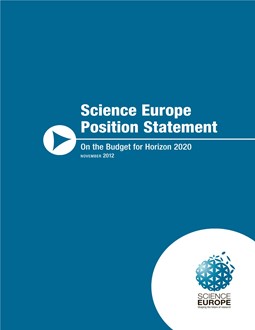Member-only content is available on this page. Please log in to view this content.

What's going on?
85 item(s) found
Policy Brief on FET Flagships
This briefing is a contribution to the evaluation and development of Future and Emerging Technologies (FET) Flagships under Horizon 2020. It highlights lessons learned about the added value and limitations of the current FET Flagships and provides recommendations for the development of the FET Flagship instrument.
Position Statement on the Framework Programme that Europe Needs
Horizon 2020 is a unique programme worldwide; it is widely appreciated and has an ambitious agenda. It can meet expectations as long as its nature as a programme capable of supporting excellent research is reinforced. Ahead of the interim evaluation of Horizon 2020, Science Europe shares the extensive experience of its Member Organisations, many of whom have decades of experience in setting up world-leading research programmes or are among the main beneficiaries of the Framework Programmes.
Funding Research in Horizon 2020: Europe’s Most Valuable Strategic Resource
Science Europe expresses strong concern that the research funding budget be maximised in Horizon 2020 so that Europe can fully realise its target of becoming a smart, sustainable and inclusive economy. Funding for research and innovation in Europe is a critical strategic investment which is essential for Europe’s long-term growth and prosperity.
Position Statement on the Role and Future of Joint Programming
This position statement highlights the added value of Joint Programming Initiatives (JPIs) as perceived by Science Europe Member Organisations, and makes two recommendations on the future of joint programming: one with regards to the evaluation of JPIs, and a second one concerning their governance. The aim is to stimulate other stakeholders – including the European Commission – to join in this discussion.
Position Statement on Priority One of the 2012 ERA Communication: 'More Effective National Research Systems'
The 2012 Communication ‘A Reinforced European Research Area Partnership for Excellence and Growth’ laid out the current approach for realising a European Research Area (ERA). As this approach is now being reviewed by the European institutions, Science Europe puts forward its analysis of Priority One of the Communication, in order to start a fruitful dialogue with the European institutions on the future of ERA policy. This analysis provides a practical example as to why the current ERA Communication approach needs to be thoroughly reviewed if ERA policy is to have a real impact.
Opinion Paper on the Human Factor in the 2014–2015 Work Programme of the Horizon 2020 Societal Challenges
Since its inauguration in early 2013, the Science Europe Scientific Committee for the Humanities has strongly supported Horizon 2020’s third pillar, Societal Challenges. The Committee realises the importance of the issues addressed, and the urgent need to find solutions to these pressing questions. The Committee is therefore committed to making the Challenges-approach successful.
Science Europe Roadmap
The Roadmap, approved by the Science Europe General Assembly in November 2013, is Science Europe’s action plan to contribute to the elements of a successful research system. It acts as a framework for voluntary collective activity, providing a long-term strategy for the association. The ‘Priority Action Areas’ are those in which Science Europe members believe that there is a potential to achieve tangible and substantive progress, and where they can add real value by working together.
Humanities and Social Sciences in Horizon 2020 Societal Challenges: Implementation and Monitoring
This Opinion Paper has been produced by Science Europe Scientific Committees for the Humanities and the Social Sciences to outline the main prerequisites for the successful integration of Social Sciences and Humanities throughout Horizon 2020’s Societal Challenges and across the entire research ‘ecology’. Overall, these elements should ensure a coherent interplay between the high-level objectives of Horizon 2020, the programme design, its implementation and evaluation.
Horizon 2020: Excellence Counts
Producing excellent science and research has historically been Europe’s key asset for sustainable growth and maintenance of a leading position in a highly competitive global economy. Horizon 2020, the European Framework for Research and Innovation from 2014 to 2020, complements national and cross-border efforts and should strengthen the impact of investments into science, research and innovation.
Horizon 2020 Budget: Time for Europe to Commit to a Knowledge-based Economy
As European leaders meet to decide on the budget of the EU for the next seven years, the 50 major Research Performing and Research Funding Organisations that constitute Science Europe would like to stress the importance of adequate funding for research and innovation at the European level. The Europe 2020 strategy is the primary EU-level plan to strengthen growth and competitiveness, by producing clear European added value through investment in education, research and innovation.

